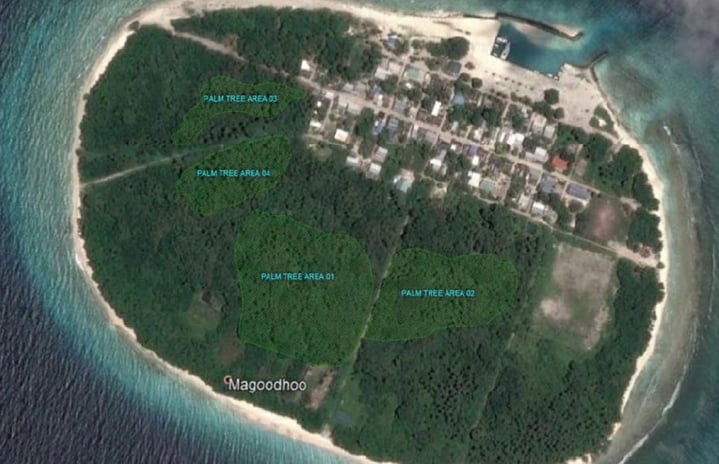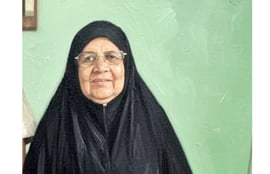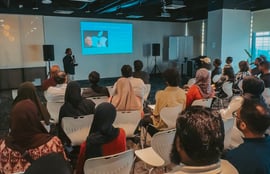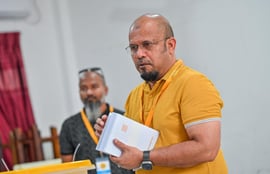Island Council of Magoodhoo, Noonu Atoll on Thursday denied permission to uproot 500 coconut palm trees, claiming that the luxury resort Soneva Jani on Medhufaru, Noonu Atoll had attempted to deceive the island council.
Soneva Jani had requested for permission to uproot 500 palm trees from three different areas of the island. As the trees in these areas were privately owned, the resort offered to compensate the owners.
Additionally, the resort management stated their willingness to take on all the work of uprooting and transporting the palm trees from the Magoodhoo to the resort.
In February, a letter was submitted from Hillside Villa Pvt Ltd, the company undertaking the project, requesting permission. The council responded by requesting that the company revert back with the necessary documents.
The Environment Protection Agency (EPA) mandates that for any projects that require the uprooting of over 200 coconut palms, an Environmental Impact Assessment (EIA) must be carried out. This is to assess any potential negative consequences the project may have on the environment.
Hillside Villa had then completed the EIA and presented the documents to the Magoodhoo Council in August.
A council member, who wished to remain anonymous, said that the EIA report contained incorrect information, noting that the report had falsely claimed that the coconut palms were to be uprooted for projects by the council, such as the development of roads in the island.
Furthermore, the member revealed that the council was never consulted regarding the matter. "We would know about our island matters, right? We were not asked. So, we decided not to give that EIA the permission," affirmed the source.
As per the source, if the 500 trees were uprooted, the three areas would subsequently lose all palm tree coverage.
Regulations have been made to address the issue of resorts sourcing coconut palms from islands. However, resorts continue to source palm trees, citing reasons that 'seemingly' abide the regulations.
According to the act, any amount exceeding 200 palm trees, can only be uprooted for causes proven crucial for the development of the island, such as children's parks, landfills and other uses like road development.
Minister of Home Affairs Imran Abdulla declared on Thursday that he had brought the illegal uprooting of trees by resorts to the attention of Police, and will be investigated,
Responding to a Twitter user who expressed concerns over this issue, the newly appointed minister stated that he has ordered the police to give special attention in investigating all actions deemed damaging to the environment.
The frequency of illegal procurement of palm trees over the last few years has brought EPA under harsh criticism over a lack of accountability.
Environmental experts state that due to such destructive actions, the delicate nature of the Maldivian environment is facing severe repercussions such as erosion, loss of habitat for indigenous creatures, and more.
A recent movement started by local environment advocates under the hashtag #MVTreeGrab has been widely credited as having brought the issue of uprooting palm trees and "tropical deforestation" to a phase of action.




